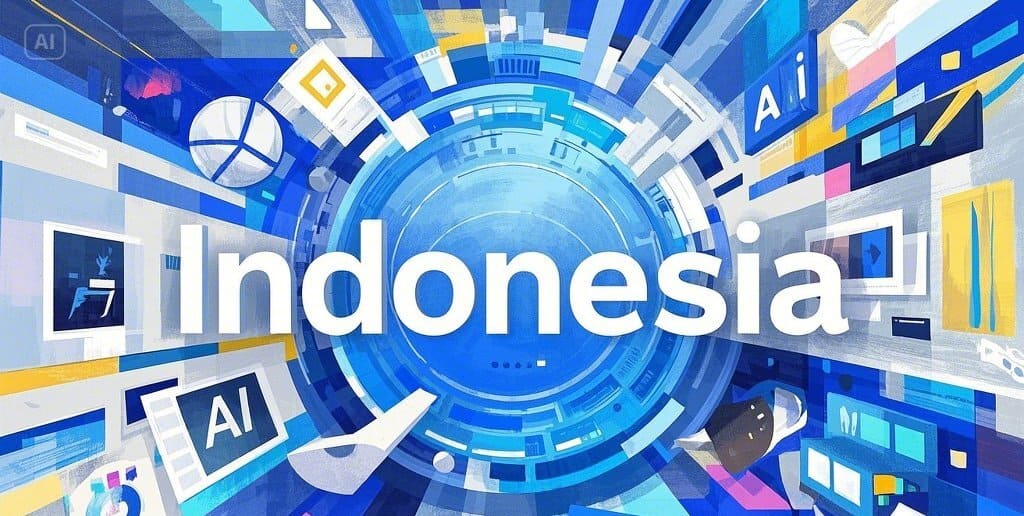Indonesian universities and schools are facing new challenges as artificial intelligence tools become more accessible to students. From elementary classrooms to doctoral programs, educators across the archipelago are working to understand how AI affects learning and assessment. This growing concern has sparked conversations about maintaining academic honesty while also embracing technological advancement.
Many Indonesian academic institutions have begun implementing reliable AI Text checker tools to help identify potentially AI-generated assignments. These detection systems help teachers ensure students are developing critical thinking skills rather than relying on AI for their academic work. Platforms like AI Text Checker offer Indonesian educators tools to verify original student work while teaching valuable lessons about digital ethics.
The integration of these verification systems represents just one aspect of Indonesia’s broader efforts to adapt education for an AI-powered future. Let’s explore how these technologies are specifically being implemented in Indonesian academic contexts.
Contents
The Current State of Academic Integrity in Indonesia
Understanding the Local Context
Indonesia’s education system, with over 4,500 higher education institutions serving more than 8 million students, presents unique challenges for maintaining academic integrity. Traditional values of community knowledge sharing sometimes conflict with Western concepts of individual authorship, creating nuanced ethical considerations around AI use.
A survey conducted at five major Indonesian universities revealed that 64% of faculty members have suspected AI-generated content in student submissions, but only 23% felt confident in their ability to identify such content without technological assistance.
“We value student creativity and original thinking,” explains Dr. Bambang Suryanto from Universitas Indonesia’s Faculty of Computer Science. “But many instructors feel unprepared to distinguish between human and increasingly sophisticated AI writing, especially in large classes with hundreds of students.”
Unique Challenges in the Indonesian Academic Landscape
Several factors make AI detection particularly important in Indonesian academic settings:
- Language complexity – Detection tools must work effectively across Bahasa Indonesia and regional languages
- Varied internet access – Solutions must function in areas with limited connectivity
- Different institutional resources – Small regional colleges often have fewer technical resources than large urban universities
- Cultural attitudes toward technology – Varying levels of technological literacy affect how AI tools are perceived
These factors have prompted Indonesian educational leaders to develop localized approaches rather than simply adopting international solutions.The proliferation of AI tools capable of algorithmically-driven writing is rapidly reshaping the educational landscape, presenting significant challenges to traditional notions of academic integrity. BMC explores how educators are responding to this shift, examining their current practices, perceptions of these technologies, and the policies emerging in the AI era.
AI Detection Implementation Across Educational Levels
Primary and Secondary Education Approaches
Indonesian K-12 schools are taking proactive measures to help young students understand the proper role of AI in learning. Rather than focusing solely on detection, many schools are implementing educational programs about responsible AI use.
For example, a network of schools in Surabaya has developed grade-appropriate workshops where students learn about the capabilities and limitations of AI. Instead of punitive measures, these schools focus on teaching students when AI assistance is appropriate and when independent work is necessary for skill development.
A 6th-grade teacher from Jakarta shares: “We had our students experiment with AI tools in class, then discuss what makes human creativity different. Now they understand why some assignments need to be their own work, not AI-generated.”
University-Level Solutions
Indonesia’s universities are implementing more comprehensive detection systems, often as part of broader academic integrity initiatives:
- Institut Teknologi Bandung (ITB) has developed an AI detection system specifically calibrated for technical and scientific writing in Bahasa Indonesia
- Universitas Gadjah Mada (UGM) combines AI detection with mandatory academic integrity seminars for all incoming students
- Bina Nusantara University has implemented a “digital signature” system where students document their creative process for major assignments
Dr. Siti Aminah from UGM’s Center for Academic Integrity explains: “We found that combining technological solutions with education works best. Students need to understand why original thinking matters, not just fear getting caught.”
Graduate Programs and Research Integrity
At the graduate level, Indonesian institutions face additional challenges in maintaining research integrity. Several leading universities have formed the Indonesian Research Integrity Consortium to develop AI detection guidelines specific to research publications.
The consortium has created a tiered verification process that includes:
- Initial AI detection screening
- Expert human review for flagged content
- Author interviews when necessary
- Documentation of research methodology and data analysis
This comprehensive approach acknowledges the limitations of AI detection technology while still providing robust protection for academic integrity.
Real-World Implementation Stories
Case Study: Rural School District in Central Java
A group of schools in rural Central Java faced particular challenges implementing AI detection due to limited connectivity and technical resources. Their innovative solution combined:
- Offline AI detection tools that teachers could use without consistent internet
- Peer review processes where students evaluated each other’s work
- Educational workshops for both teachers and students
“Our approach had to work with the resources we had,” explains the district’s educational technology coordinator. “We focused on building a culture of honesty rather than relying solely on technology.”
After one year of implementation, teachers reported increased student engagement and higher quality work, suggesting that addressing AI authorship can actually improve educational outcomes.
Case Study: Large Private University in Jakarta
A major private university in Jakarta took a different approach, integrating AI detection directly into its learning management system. The comprehensive solution included:
- Automatic scanning of all submitted assignments
- Detailed reports for instructors showing potential AI-generated sections
- Student appeals process with human review
- Progressive consequences for violations
The university reported a 47% decrease in suspected AI-generated submissions after implementation, along with improved student writing skills as measured by standardized assessments.
Best Practices for Indonesian Educational Institutions
Developing Clear Policies
Indonesian schools and universities finding success with AI detection share these policy approaches:
- Clearly communicating expectations about when AI use is permitted or prohibited
- Defining different levels of AI assistance (research aid, editing help, complete generation)
- Creating fair processes for reviewing flagged content
- Focusing on education rather than punishment
A policy specialist from the Ministry of Education and Culture notes: “The most effective policies treat AI as a tool that students need to learn to use responsibly, not just something to be detected and punished.”
Technical Implementation Guidance
For Indonesian institutions implementing AI detection, these technical considerations have proven important:
- Selecting tools calibrated for Bahasa Indonesia and local languages
- Creating systems that work with varying levels of connectivity
- Ensuring accessibility across different devices
- Building in human review processes to account for detection limitations
Several Indonesian universities have formed a technical working group to share best practices and collectively improve detection capabilities for local contexts.
Teacher and Faculty Training
Even the best detection systems require trained educators who understand:
- How AI writing tools work and their limitations
- What detection results mean and don’t mean
- How to use detection as a teaching opportunity
- When to trust technology versus human judgment
“The tool is just one part of the solution,” explains a faculty development specialist at Universitas Indonesia. “We spend more time training instructors how to have productive conversations with students about AI than we do on the technical aspects of detection.”Discussions surrounding AI often present a false choice: either resist the technology or redefine academic integrity itself. A doctor’s comment on LinkedIn challenges that notion, asserting that the core values of integrity endure and the real task is to evolve educational practices—not foundational principles—to meet the current technological landscape.
The Future of Academic Integrity in Indonesia
Balancing Innovation and Tradition
As Indonesia continues developing its approach to AI in education, many leaders emphasize the importance of balancing technological innovation with traditional educational values.
“Indonesia has a rich tradition of knowledge sharing and collective wisdom,” notes Dr. Widodo from the Indonesian Educational Research Association. “We need AI detection systems that respect these cultural values while still promoting individual skill development.”
This balanced approach often means distinguishing between:
- Formative assignments where AI assistance may be appropriate
- Summative assessments where independent work is necessary
- Collaborative projects with clear attribution guidelines
Building Indonesian-Specific Solutions
Rather than relying solely on imported technology, Indonesian institutions are increasingly developing localized solutions:
- AI detection models trained specifically on Indonesian student writing
- Systems that understand common patterns in Bahasa Indonesia and regional languages
- User interfaces designed for Indonesian educational contexts
These efforts recognize that effective AI detection must be culturally and linguistically appropriate to the specific contexts where it’s deployed.
Collaborative Nationwide Efforts
The complexity of AI detection has prompted unprecedented cooperation among Indonesian educational institutions:
- Shared databases of AI writing characteristics in Indonesian languages
- Collaborative research on detection effectiveness
- Resource sharing to help smaller institutions implement solutions
The Ministry of Education and Culture has also established an AI in Education task force to develop national guidelines and support implementation across the country.
Conclusion
As AI continues transforming education in Indonesia, detection technology represents just one component of a comprehensive approach to academic integrity. The most successful Indonesian institutions combine technological tools with clear policies, faculty training, and student education about responsible AI use.
By developing approaches that respect Indonesia’s unique educational context while addressing universal concerns about skill development and assessment, Indonesian educators are creating models that may prove valuable for other countries facing similar challenges.
For institutions still developing their approach, looking to these successful Indonesian examples can provide valuable insights into balancing technological solutions with educational values. As AI continues evolving, Indonesia’s educational system will likely continue adapting—maintaining academic integrity while preparing students for a future where AI is an increasingly common tool.


